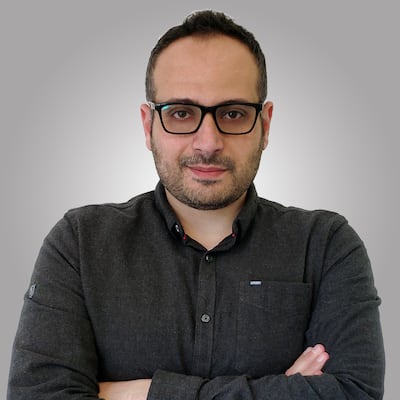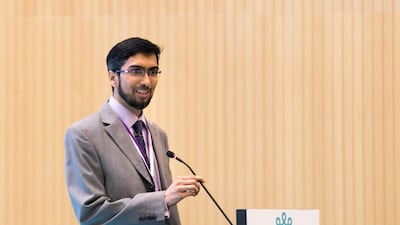The UAE’s National Genome Strategy has been hailed by scientists as one of the most ambitious programmes yet to analyse the genetic material of a country’s population.
As reported in The National, more than 400,000 citizens have already submitted cheek swabs or blood samples for analysis, with the aim being to collect one million samples.
From each sample, automated sequencing machines will be able to produce a profile of that individual’s genome, their complete set of genetic material.
director of the Public Health Research Centre at NYU Abu Dhabi
This information may pinpoint which diseases the person is more vulnerable to or indicate which drugs would work most effectively on them.
Such large-scale analysis has become possible because the cost of sequencing has dropped dramatically at the same time as the speed has increased.
"The first genome [sequenced] cost $3 billion. Up until recently, it cost a few thousand dollars. Now it’s a few hundred. The cost of sequencing everybody’s genome is relatively affordable," said Raghib Ali, director of the Public Health Research Centre at NYU Abu Dhabi and principal investigator of the UAE Healthy Future Study.
"Having that information on this scale means that instead of it being primarily a research project, it can also be used for clinical utility.
"It’s a transformative project. There’s no country where that has been done before – sequencing the whole population," Dr Ali said
Neighbouring countries also have initiatives in which large numbers of people are having their genetic material sequenced, including Saudi Arabia, with the Saudi Genome Project, and Qatar with the Qatar Genome Programme.
Marc Haber, an associate professor in the Institute of Cancer and Genomic Sciences at the University of Birmingham Dubai, said currently a person may be prescribed several drugs in succession by a doctor until one that works is found.
A patient’s genetic information may help doctors to know which drugs will work and which ones will not, making treatment more effective and reducing the risk that the individual experiences side effects after taking numerous medications.

"The idea of precision medicine is using your genetic background, but also other health information, and using databases like the one the Emirates is trying to create now … to be able to predict what diseases this person will develop in future, but also what is the best treatment for this person," Dr Haber said.
"We’re going into more precision medicine in the future and the only way for us to do it is to have a population sequencing project like this one."
Genes are made up of sequences of chemical groups known as bases, which exist in bonded pairs in a strand of DNA. There are four bases in DNA – adenine, cytosine, guanine and thymine.
Proteins are coded for by genes, and the sequence of base pairs in a gene determines which protein that gene will produce. These proteins determine how cells function and grow.
"The different sequence of those bases is what makes you unique," Dr Haber said. "You have 3.2 billion base pairs in your genome. The aim is to sequence all of those.
"When you sequence them you understand how they are arranged on your genome and you start to understand the differences between one person and another person, but also differences between one population and another population."
Finding the link between genes and particular diseases
Aside from benefits in terms of precision or personalised medicine, projects such as the National Genome Strategy, by comparing genetic data with the medical history of large numbers of individuals, identify associations between genes and particular diseases.
With greater numbers of people, this becomes possible even for complex diseases that may be influenced by several genes.
"It’s very clear from projects … in England and lots of other international endeavours that [sequencing] has the potential to completely revolutionise the diagnosis of disease and the [understanding of the] molecular basis of disease," said Sarah Ennis, professor of genomics at the University of Southampton in the UK.
Most genetic studies have been carried out on people who are of European heritage, meaning that the association between disease and genetics is better characterised for these populations. Projects such as the National Genome Strategy, which will be completed over the next decade, help to redress this imbalance.
"Historically the Arab world contributed less than 1 per cent [of the data to genetic studies]. All these one million will make a big difference," Dr Ali said.
Having very large numbers of samples also helps scientific studies into issues such as lineage and ancestry, potentially shedding more light on the origins of the UAE’s citizens.
The amount of data generated by large-scale sequencing is so great that processing it and gaining insights can be difficult.
"We use machine learning, artificial intelligence and other high throughput modelling systems to be able to [cope] with the [amount] of data," Prof Ennis said.


